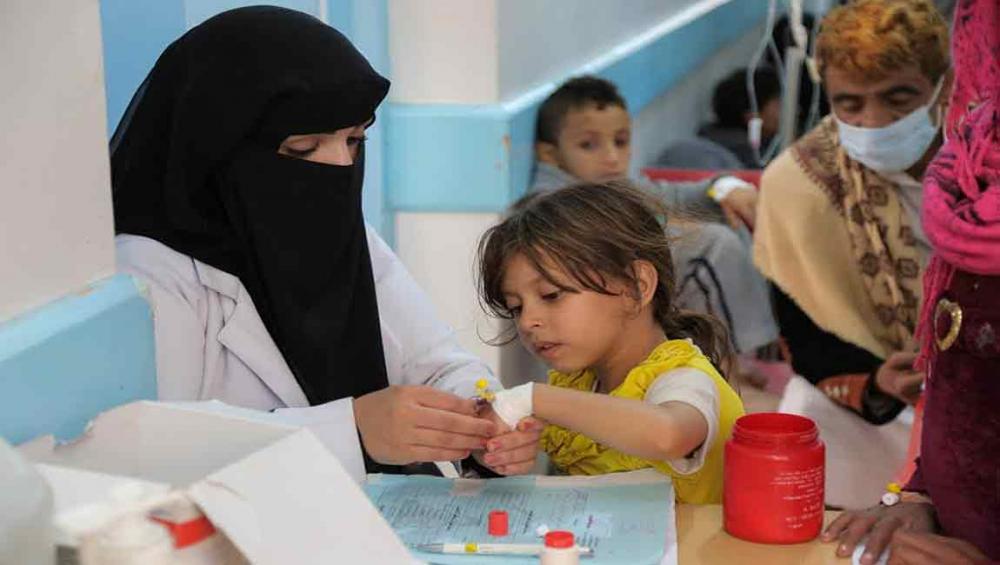Just Earth News | @@justearthnews | 12 Jul 2017, 06:34 am Print

UNICEF/ Alzekri
“This unprecedented cholera epidemic would further weaken the resources, and the resilience that people had had over the last two and a half years of this war,” Jamie McGoldrick, the Humanitarian Coordinator for Yemen, told journalists in Geneva.
There were now 313,538 suspected cases of cholera and 1,732 deaths, according to figures from the UN Office for the Coordination of Humanitarian Affairs (OCHA).
About 40 per cent of the suspected cases and a quarter of the deaths were among children younger than 15 years old, particularly the malnourished. Older adults, pregnant women and people with chronic health conditions were among the greatest risk for death.
“All of this is entirely man-made, as a result of the conflict,” McGoldrick said by phone from Amman, Jordan.
He noted that two million additional people were added to the humanitarian case load since the start of the year as a result of the cholera outbreak, the looming famine, and the economic collapse.
Humanitarians were not as far ahead as they should be in terms of the cholera response, he noted, mainly due to the fact that they did not have enough resources to expand their operations into areas where health workers were working without pay.
“The actual system is in complete collapse,” he said.
The UN has received only one-third of the $2.1 billion it sought to provide food to the millions people facing famine in Yemen; separately, a $250 million funding appeal on cholera received only $47 million.
“Agencies have had to use resources which they had programmed otherwise, for example for food security or malnutrition,” said McGoldrick.
UN agency considers “shelving” cholera vaccine in Yemen
Meanwhile, the UN World Health Organization (WHO) is considering not shipping vaccines tagged for Yemen.
“A vaccination way ahead of an outbreak would be useful, but that would imply a huge amount of vaccines, taking into account all the countries where cholera was endemic,” Christian Lindmeier, WHO spokesperson, told journalists.
- World must ‘speed up’ efforts to end AIDS pandemic by 2030
- World Bank provides $700 million to improve primary education in Bangladesh
- Aid has not reached ‘a single soul’ in Syria’s besieged areas in December, says UN advisor
- UN tribunal for former Yugoslavia leaves behind culture of accountability, says Guterres
- Security Council renews Syrian cross-border relief convoys amid ongoing challenges for aid workers





-1763561110.jpg)
